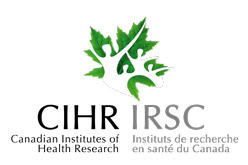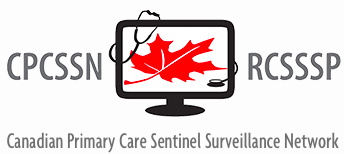Getting Started in Primary Care Research
So you are interested in learning more about primary care research, fantastic! Below you will learn more about what primary care research is, as well as answers to frequently asked questions about primary care research and resources, and other organizations that can help you get started.

What is primary care research?
Primary care research is research done by members of the primary care team, with their patients and communities that they serve.
Primary care research includes:
- Translating science into the practice of medicine and caring for patients
- Understanding how to better organize health care to meet patient and population needs
- Evaluating innovations to provide the best health care to patients
- Engaging patients, communities, and practices to improve health
Why should you do research?
Research is a critical component to the continued growth and development of the field of primary care medicine. Most patient care occurs in primary care offices, but most research is done in academic medical centers. The primary care office is an ideal laboratory for the study of issues patients face. And yet, the majority of research funding supports research of one specific disease, organ system, cellular or chemical process—not for primary care. Very little is known about important topics such as how primary care services are best organized, how to maximize and prioritize care, how to introduce and disseminate new discoveries so they work in real life, and how patients can best decide how and when to seek care.
How do primary care offices use research?
In everyday patient care, primary care researchers evaluate, select, recommend, and explain new information and clinical interventions. The primary care office is an ideal laboratory for the study of issues patients face. And yet, the majority of research funding supports research of one specific disease, organ system, cellular or chemical process—not for primary care. Very little is known about important topics such as how primary care services are best organized, how to maximize and prioritize care, how to introduce and disseminate new discoveries so they work in real life, and how patients can best decide how and when to seek care.
What role can you play in doing research?
There are many opportunities for you to contribute to the research enterprise, from simply collecting data for a large study to being the primary investigator of a nationally funded project. Primary care researchers are needed at every level. Everyone has the opportunity to participate in the essential process of identifying and answering questions that change practice and improve the health of our patients.
How do I start doing research?
Start with a limited role that uses your current knowledge and matches your clinical interests. You can learn research methods, data analysis, writing, and presenting skills as you expand your responsibilities. Most importantly, find a mentor who can guide your interests and support your work. There are many organizations that provide opportunities for trainees as well as anyone interested in research to get involved. Many Departments of Medicine have student research programs, and all family medicine residency programs require involvement in research.
How can NAPCRG help me?
NAPCRG is the leading organization devoted to primary care research. It is also a nurturing environment that welcomes and supports new researchers at all stages of their careers. The NAPCRG Annual Meeting is the premier place to present your research, build skills through workshops, meet colleagues, and share in building the future of primary care.

Hear the success stories of your fellow NAPCRG members and learn how the findings from primary care research translate into improved patient care and outcomes. These stories demonstrate to funding partners and other key stakeholders the direct impact of primary care research on patients and the way primary care is administered.
|
Edward J. Bujold, MD |
Lynn Farrales, MSc, MD |
|
| Ann MacCauley, CM, MD McGill University Montreal, Quebec |
||
Do you have success story you would like to share? Tell us your story in writing by filling out this form here. The stories should have outcomes that address improvements in health, healthcare quality, access and/or cost. Ideally, the story will show that real differences can be accomplished as a result of investing in primary care research. Contact Leyla Haddad at lhaddad@napcrg.org for more information on the Impact Stories project.


The American Academy of Family Physicians National Research Network (AAFP NRN) was established in 1999 to conduct, support, promote, and advocate for primary care research in practice-based settings.
The AAFP NRN assists in realizing overall strategies for achieving improved primary care for the nation. These include: supporting initiatives in advancing the Patient Centered Medical Home (PCMH), promoting an ongoing for practice change through improved use of technology, education and communication; assisting our members to achieve financial success through optimal practice management; involving family physicians in targeted public health activities; and increasing member and patient awareness of resources through educational programs.
Learn more about the AAFP National Research Network

The eight AHRQ PBRN Centers for Primary Care Practice-Based Research and Learning (P30 Centers) represent over 50 PBRNs. Together, the P30 Centers operate in all 50 US states and internationally, serving over 24 million patients. Visit the PBRN Profiles page to learn more about the breadth of PBRN research and activities.
Learn more about the AHRQ PBRN Centers for Primary Care Practice-Based Research.

The Canadian Institutes of Health Research (CIHR) is Canada’s federal funding agency for health research. Composed of 13 Institutes, and collaborate with partners and researchers to support the discoveries and innovations that improve our health and strengthen our health care system.

The Section of Researchers (SOR) is the Section of the College of Family Physicians of Canada (CFPC) that addresses research at the CFPC. Members include family physician and associate members of the CFPC. Clinicians and researchers support each other and share experiences at the CFPC’s Family Medicine Forum, other conferences, and through publications.
Learn more about the CFPC-SOR.

The Canadian Primary Care Sentinel Surveillance Network (CPCSSN- pronounced sipsin) is a new collaboration. CPCSSN is Canada's first multi-disease electronic record surveillance system. Essentially, CPCSSN can be thought of as a library of digital information on health; specifically a database on chronic diseases. The information gathered will help physicians better understand chronic disease and improve the care Canadians with chronic disease receive. It is expected that CPCSSN will share information and reports with governments, physicians, nurses, and other health care team members, researchers, and planners to improve primary health care. The CPCSSN initiative is funded by the Public Health Agency of Canada under a contribution agreement with the College of Family Physicians of Canada (CFPC) on behalf of nine practice-based research networks (PBRNs) associated with departments of Family Medicine across Canada. CPCSSN also works together with the Canadian Institute of Health Information (CIHI).

The National Institutes of Health (NIH), a part of the U.S. Department of Health and Human Services, is the nation’s medical research agency. NIH is the largest public funder of biomedical research in the world, investing more than $30 billion in taxpayer dollars to achieve its mission to enhance health, lengthen life, and reduce illness and disability. In pursuing this mission, NIH improves health by promoting treatment and prevention, contributes to society by driving economic growth and productivity, and expands the biomedical knowledge base by funding cutting-edge research and cultivating the biomedical workforce of today and tomorrow.

The SGIM mission is “to promote improved patient care, research, and education in primary care and general internal medicine.” To this end, the organization is divided into three content areas that correspond with our mission’s pieces. The Research arm of SGIM is comprised of the Research Committee and various other task forces and work groups that help develop new material geared toward research goals in the field of general internal medicine.
Learn more about SGIM research.

Learn more about the Society for Pediatric Research.

Books:
An Odyssey of Primary Care Research, Historical Perspectives
by Edward Bujold MD FAAFP (Author), Paul Wise (Editor)
The Beloved Physician Sir James Mackenzie
by R. McNair Wilson (Author)
The Life of Sir William Osler, Volume 1
by Harvey Cushing (Author)
Carolyn.Orlando@312Chicago.com kara@victorytapchicago.com cbane@roanokehospitality.com shannon@thescoutchicago.com Hello, We are looking for a location to hold a private dinner for our organizations past-presidents on November 11 , from approximately 6 - 8:30 pm for roughly 28 people. Thanks!
by Wayne C Booth (Author)
by Dr. Stephen B Hulley MD MPH (Author), Steven R Cummings MD (Author), Warren S Browner MD MPH (Author), Deborah G Grady MD MPH (Author), Thomas B Newman MD MPH (Author) (Author)
Bootcamp Translation
by Linda Zittleman (Author)
How to Write a Lot: A Practical Guide to Productive Academic Writing
by Paul J. Silvia
The Remedy: Robert Koch, Arthur Conan Doyle, and the Quest to Cure Tuberculosis
by Thomas Goetz (Author)
Journals:
The Annals of Family Medicine
Family Medicine
The Journal of the American Board of Family Medicine
Family Practice
Journal of Primary Care & Community Health
Journal of Patient-Centered Research and Reviews
Address
NAPCRG
11400 Tomahawk Creek Parkway
Leawood, KS 66211
800.274.7928
Email: napcrgoffice@napcrg.org